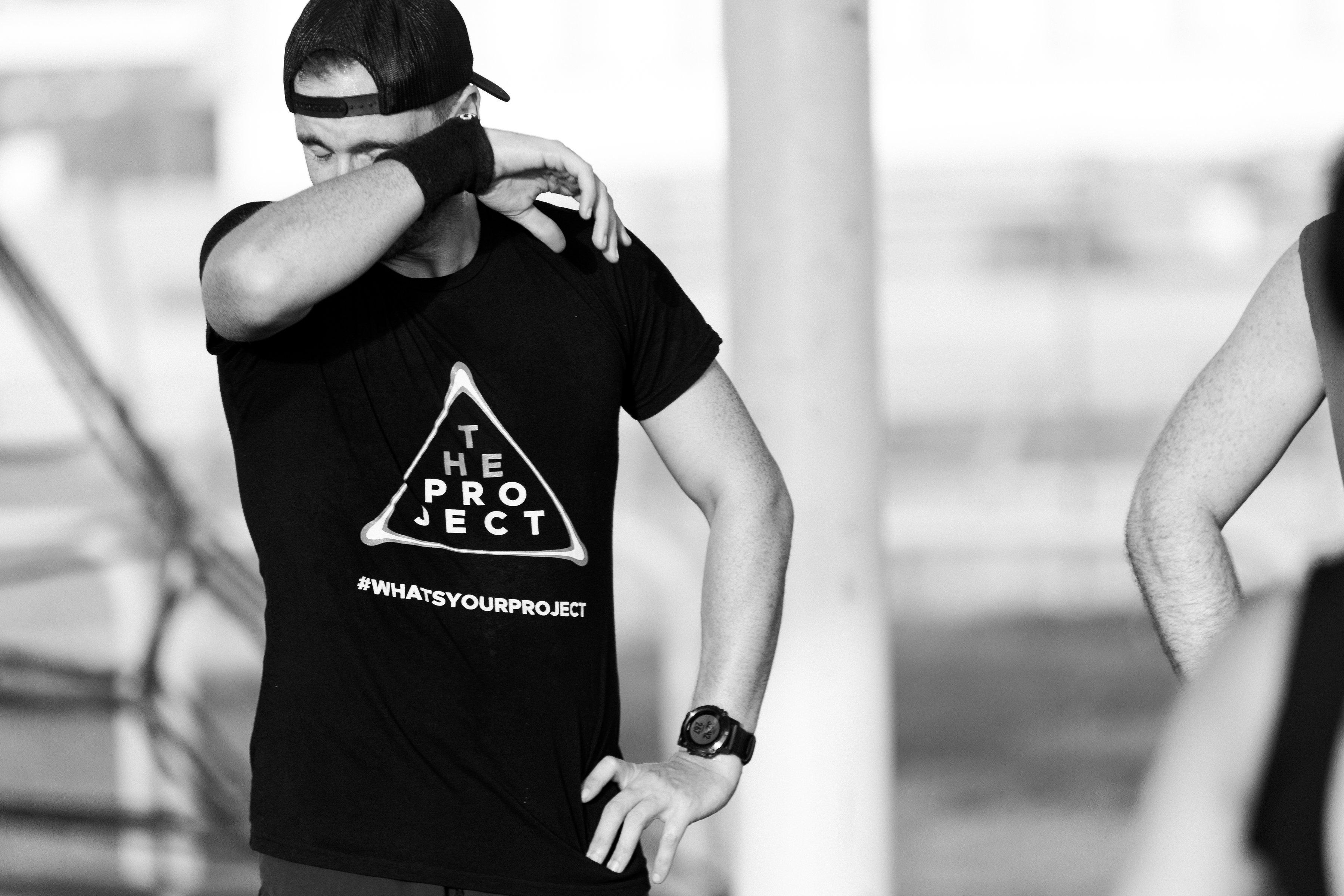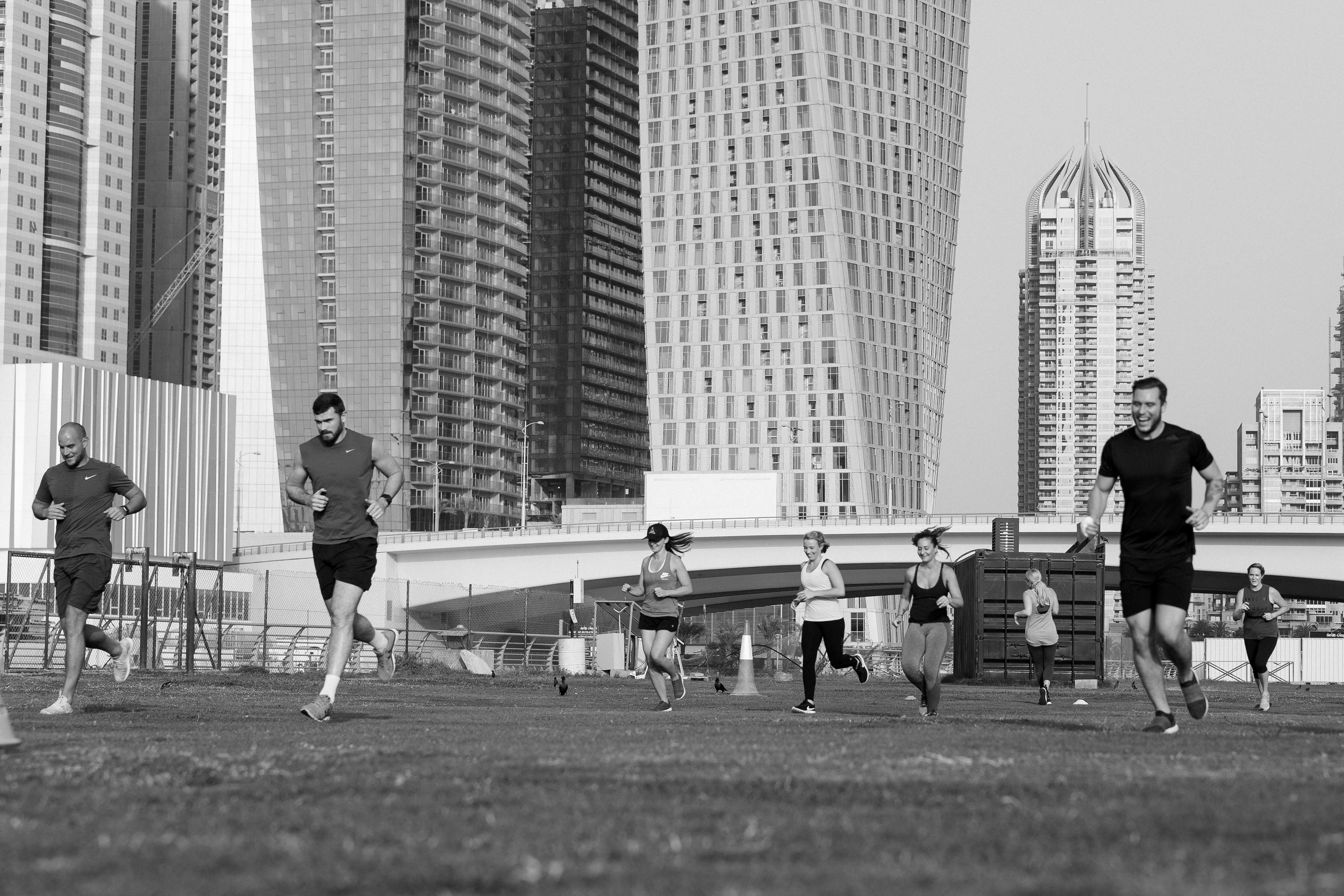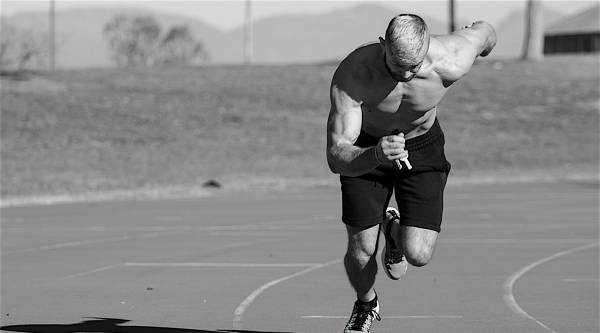The Dubai summer is here and as we know it can get freaking hot with temperatures marching up to 50+ degrees!!
Everybody dreads the summer months but it’s no reason to stop your training or running outdoors, your body is very resilient to changes in climate and with the right preparation you can continue with your outdoor activities and still perform amazing.
Firstly, you’re going to sweat.
So, let’s talk Thermoregulation. This is how your body maintains a consistent internal temperature. When exposed to external heat, your body cools itself and maintains balance via perspiration.
Perspiration has a cooling effect on the body because it removes excess heat through evaporation. The rate of evaporation - and subsequently how well the body cools itself - changes depending upon humidity. When humidity is low, evaporation increases; when humidity is high, the rate of evaporation decreases and less cooling occurs.
Sweating is crucial to cooling the body but of obviously leads to fluid loss. If not replaced effectively it can lead to a decrease in performance, feeling faint, tired, heart palpitations, and muscle cramps. Hydration is key.

Preparation
Your body needs H2O to perform every bodily function. Your total body weight is about 60% water, mostly being stored as intercellular fluids.
‘Most people can tolerate a three to four percent decrease in total body water without difficulty or adverse health effects. A five to eight percent decrease can cause fatigue and dizziness. Loss of over ten percent of total body water can cause physical and mental deterioration, accompanied by severe thirst. Death occurs at a loss of between fifteen and twenty-five percent of the body water.’ Wikipedia
Dehydration from fluid loss can also have a huge effect on your overall performance – a loss of just 2% of body water can decrease performance by up to 6%. Furthermore, both high temperatures and humidity increase you heart rate and amplify these effects.
If you come into a session already slightly dehydrated you will find it near impossible to rehydrate yourself during a training session, you really need to be prepared.

How much water do I need daily?
A very simple rule to follow is to consume 1ltr per 20 kilos of body weight per day. For example, if you weigh 70kg then you should consume at least 3.5ltrs per day.
This is a good start point but remember other external factors effect how much water we need.
- Living in Dubai we are exposed to air conditioning in our homes, cars and offices. Everywhere. Especially during the summer. AC causes a low water content in the air, leading to increased water loss from the lungs and through the skin.
- You will lose more water during exercise and general activity too through increased breathing rate and sweating more. You should aim to consume additional water during and around your training sessions. Generally, I would work off 0.5 ltrs pre, 1 ltrs peri, and 0.5 ltrs post to keep topped up.
- Hotter climates and humidity. Obvious one…
Electrolytes plays a role
When you sweat a lot you don’t just release water from the body but also your bodies electrolytes. There are a several electrolytes our body needs – not just salt - and they are needed for a bunch of reasons:
- Sodium (Na) – Maintains fluid balance
- Potassium (K) – Prevents muscle cramping
- Calcium (Ca) – Regulates muscle contractions and heart rhythm
- Magnesium (Mg) – Relaxes muscles
- Bicarbonates – May delay fatigue and enhance performance
Supplementing with an electrolyte powder will replace and top up lost electrolytes, help you draw more water into cells and generally feel and perform much better!
Salt tabs alone are not the best bet for 2 reasons
1. They only contain 2 of the electrolytes your body needs - sodium and chloride
2. They can over supply the body with too much sodium
What ones then, how much should I take, and when?
Thorne is a very reputable for science based nutrition and quality. They ship to the UAE through iHerb (link below)
https://ae.iherb.com/pr/Thorne...
Generally I would suggest taking 1 scoop mixed with 500ml of water 60 minutes before training, 1 scoop mixed in 1000ml during training, followed by 1 scoop mixed in 500ml after training.
Although if you have any concerns please speak personally to your GP or health care specialist.

How to know if I am fully hydrated
Simplest way is to access your pee. Your urine should be clear when you’re fully hydrated. When dehydrated slightly it will become more yellow towards a golden/orange colour if you start to become severely dehydrated.
(See pee chart)

Tips from the trenches
- Be sure to keep hydrated throughout the day. Don’t leave it till you feel thirsty to drink, follow the 1ltr/20kg rule and split it evenly through the day.
- Having cold water during training will assist body cooling. Half freeze a big bottle of water so it’s a little slushy at the start of a workout. As it melts it will still remain cold during an extended workout or sports match.
- Supplement with Electrolytes 60mins before an intense training session or run. Also replace lost fluids and electrolytes after your session.
- Wear more breathable fabrics. Thick cotton t-shirts are not going to be the best to help the rate of evaporation from the skin. Opt. for Dri-Fit materials.
- Choose to train later in the afternoon/evening, or first thing in the morning when it is significantly cooler.
- Don’t use the heat as an excuse for poor performance. Everyone is under the same conditions. Become mentally tough and stick it out!
- Poor performance is down to poor preparation.
Now. Go run!
Coach Jack
Jack@theprojectdxb.com
@coachjackdubai